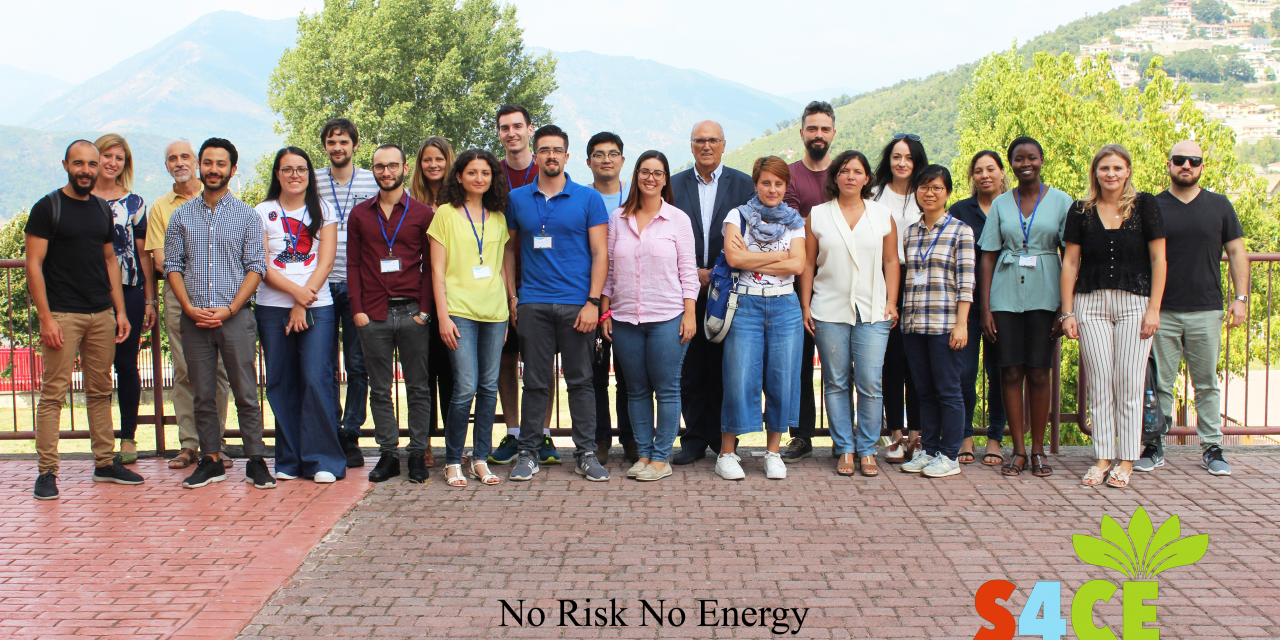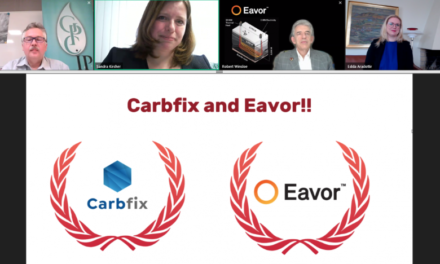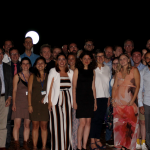S4CE Summer School “No risk, no energy” took place at the University of Salerno (Unisa) in the broader framework of S4CE commitment on training the next generation of scientists who will be in charge of the sustainable deployment of geo-energy operations.
The summer school covered different topics related tothe risks that should be considered by exploiting different sources of energy.
One of the main focuses was to understand and differentiate basic concepts about risk and impacts. Based on the topics proposed in each of the classes it was of great interest to discuss, and participation was very enthusiastic. The different policies applied to risks and impacts in water pollution, induced seismicity, mining operations and geothermal energies were discussed.
All the presentations were designed to familiarise us with the inherent risks in the production of fossil or renewable energies. There is currently no means of production or energy management that is not itself emitting and/or linked to significant risks for people and the environment.
Mainly oriented towards geothermal energy and CO2 storage, this summer school has allowed us to meet many stakeholders spread over the set of fields that control geothermal energy and carbon storage.
The importance and impacts of these new facilities on groundwater and surface water were discussed and we also have learned in detail the steps required to set up a geothermal plant, and the functioning of the energy industry risk analysis. This risk analysis was accentuated with the presentation of the regulation and the direction followed by the Italian Ministry for Economic Development and finally, we ended with a broader presentation on multi-hazard on multi-risk exploration analysis and exploitation of georesources. Particular attention was given to the use of the IS-EPOS platform and its use.
The last part of the school was focused on a set of examples linking to the notions of sustainability and the Life Cycle Assessment. All this information, examples and presentations allowed us to better understand the energy issue through an objective view based on the fact that it is unfortunately impossible to combine energy production with the absence of risk. However, the set of risks linked to these energies and these industries are based on an important legal framework, on methods predictions, preventions and concrete case analyzes, and on a very good knowledge of the stakes and the necessary developments carried out by the S4CE project. These skills will eventually enable us to obtain energy supplies based on a limited number and well-constrained risks.
It is of great importance to have information and guidance regarding the regulations applied and what is lacking regarding issues. Similarly, discussing ethics and being able to have specialists in different areas on these topics of study allowed us to have a better understanding and vision of what could be done in the near future.
During the whole summer school, the group was very participative and reactive allowing numerous discussions and exchanges with the speakers and between the different students. The atmosphere was very good and relaxed with a good cohesion in the group.
Finally, we would like to thank all the speakers for the dissemination of their knowledge and skills, as well as for the time they have given us, and also a big thank you to the UNISA team for the very good organizations of the summer school but also for their implications, kindness and presence for the 3-day Summer School.
Samuel Barbier & Jorge Osman, Université Claude Bernard, Lyon 1









